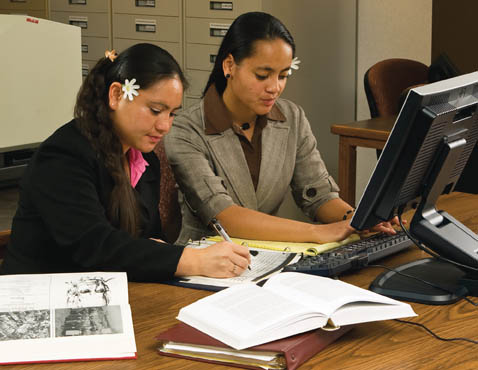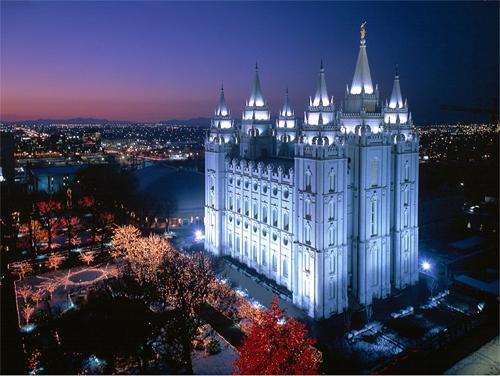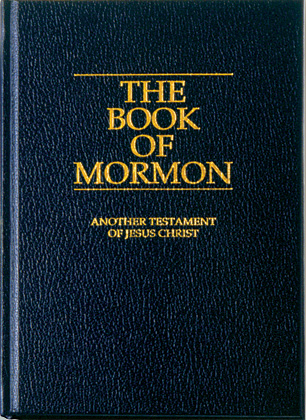What is Mormon genealogy?
 Mormon genealogy, also called family history, is becoming more and more popular in the secular world today. The Church of Jesus Christ of Latter-day Saints (often called the Mormon Church) has always considered family history a very important work for each individual. There are a couple of reasons for this. Any historian will tell you that we should apply lessons from history to improve the outlook for our future. Learning about our ancestors gives one perspective and roots.
Mormon genealogy, also called family history, is becoming more and more popular in the secular world today. The Church of Jesus Christ of Latter-day Saints (often called the Mormon Church) has always considered family history a very important work for each individual. There are a couple of reasons for this. Any historian will tell you that we should apply lessons from history to improve the outlook for our future. Learning about our ancestors gives one perspective and roots.
We inherit far more than material possessions from those who have gone before us. Familial traits such as fortitude, integrity, religious commitment and ideals, rebellion, and many others have been passed down through generations. How do we know what our inheritance is if we do not know the people we have come from? Mormon doctrine teaches that it is a heavy responsibility to share the knowledge we have of God with our children. This is often done through personal histories.
The far more important reason behind Mormon genealogy, however, is the Mormon doctrine of salvation for the dead. Mormons believe that those who died without a chance to hear and accept the gospel of Jesus Christ must have that opportunity. However, the saving ordinances of the gospel are physical; one must have a body to participate in them. Those who have died obviously no longer have this ability. This is where Mormon temple work comes in.
Mormons believe that the first ordinances of the gospel are baptism by immersion for the remission of sins and the laying on of hands for the gift of the Holy Ghost. Children may be baptized after they reach age 8, but any convert to the Mormon Church participates in the same ordinances when he or she is brought into the church. The other ordinances essential to salvation are received in Mormon temples.
The first time an adult Mormon goes through a Mormon temple, he or she receives his or her personal ordinances. Each successive time a person returns to the temple, these ordinances are performed by proxy for deceased people. This means that a living person goes through the ordinance just as he would if it were for himself, but in the name of someone else. Mormon doctrine teaches that this gives the departed person the chance to accept or refuse this work in the Spirit World, whereas before, he would just be damned spiritually, unable to progress because he had not been able to receive these ordinances.
Free will, or free agency, is a key part of Mormon doctrine. Mormons believe that, though God is all powerful, loving, and omniscient, He will never force anyone to accept Him. Thus, any deceased person for whom temple work is done will still have the option of accepting the work or not. No one is being forced to convert. In addition, Mormons are strongly encouraged to do their own family history work and to bring those names to the temple. Any names of deceased people for whom work is being done in the temple are submitted by family members. You cannot take just any name to the temple and do the work for them. Either they must be a direct relative, or permission must be received from the nearest, living relative of the deceased to do work for that person.
Mormon doctrine teaches that the salvation of each of us is directly tied to the salvation of our family members. Mormons believe that families are forever. We can be sealed together by the power of God for eternity through covenants made in Mormon temples. This will bind families together after this life. The goal is to have the entire human family bound together by these loving, eternal ties, but if there are gaps in the chain, then there is a problem. Thus, Mormon geneaolgy is meant to find our family members as far back as possible to bring us all together.
Mormon doctrine teaches that the prophecy contained in Malachi 4:5–6 means we must do this work if we hope to gain our own salvation:
Behold, I will send you Elijah the prophet before the coming of the great and dreadful day of the Lord:
And he shall turn the heart of the fathers to the children, and the heart of the children to their fathers, lest I come and smite the earth with a curse.
Elijah had the sealing power to bind families together, and he returned to the earth to restore that power to Joseph Smith. This authority and power is what sets Mormon temples apart today; it is there the power exists that can seal us together as families for eternity, and what a magnificent blessing that is.
Mormon genealogy libraries are available worldwide to the public at no cost. This work is important for all people, whether they are of the Mormon faith or not. Names that other people find for their personal histories are not submitted to the temple. There is no subterfuge involved. Materials are simply made available to anyone who wishes to learn more about their own families. The Church of Jesus Christ of Latter-day Saints has some of the most developed technology for genealogy, and all of it is available to the public. In addition, each family history center is equipped with trained people who can help you if you are just getting started and don’t know what you’re doing.
Mormon genealogy is simply family history, and is an important facet of the religion. If you are interested in learning more about your family history, feel free to contact workers at a family history center in your area.




There are many aspects to “salvation,” and it’s important to understand how Mormons define the word. First, salvation means salvation from death. Resurrection saves us from the grave and is a free gift to all of us because of the atonement and resurrection of Jesus Christ. Second, there is salvation into heaven. Mormons believe that all people will inherit a kingdom of heaven, except “Sons of Perdition,” who have seen Christ personally and then denied Him, thus crucifying Him anew. Those who reject a belief in Christ will not be able to avail themselves of His suffering in their behalf, so they will have to suffer for their own sins, but they will still inherit a kingdom of heaven. Third, there is salvation from sin, which I’ve partially mentioned. Through our belief in Christ, we can avail ourselves of His atonement, wherein He suffered for our sins, so we won’t have to. Fourth, there is salvation to the highest kingdom of heaven, where God’s full presence shines. For this kind of exaltation, one must be baptized by immersion by one who has authority from God.
After reading this in the artical see below
“The other ordinances essential to salvation are received in Mormon temples”.
Does this mean you beleive that a person must be baptized in order to be saved.